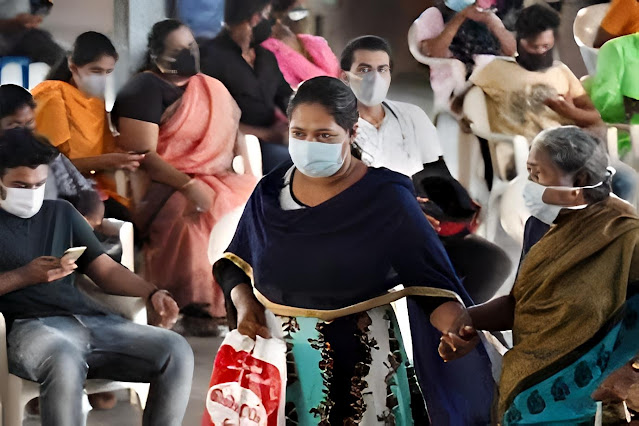As health authorities closely monitor a recent uptick in Covid-19 cases across several Indian states, concerns are rising not only domestically but also regionally. Reports indicate that parts of Asia, including Hong Kong and Singapore, are experiencing similar trends. While national case numbers remain significantly lower compared to previous waves, cities like Mumbai, Chennai, and Ahmedabad have reported noticeable increases in infections. This blog explores the current situation, its underlying causes, and what it means for public health.
Mumbai: A Spread Emerges
In May alone, Mumbai has recorded 95 Covid-19 cases—a stark contrast to Maharashtra's total of just 106 cases since January. The state health department has confirmed that at least 16 individuals have been hospitalized. To mitigate further spread, patients from KEM Hospital are being transferred to Seven Hills Hospital. Health authorities are conducting tests on all patients displaying influenza-like symptoms (ILI) or severe acute respiratory infections (SARI), emphasizing the importance of vigilance in identifying potential cases.
Cases Beyond Mumbai
The uptick isn't isolated to Mumbai. In Haryana's Gurgaon and Faridabad, three new Covid-19 infections have been reported. A woman returning from Mumbai tested positive in Gurugram, alongside a local man who had no travel history. In Faridabad, a 28-year-old security guard exhibiting fever and cough symptoms was diagnosed after seeking medical attention at Delhi's Safdarjung Hospital.
Preemptive Measures in Pune
Despite having only one case reported this month—an elderly individual who has since recovered—Pune officials have taken proactive steps by reserving 50 beds at Naidu Hospital for potential future cases. This precautionary measure underscores the ongoing readiness of local health systems to respond to any resurgence.
Tamil Nadu's Rising Numbers
Tamil Nadu is also facing increased cases, with 12 new infections reported in Puducherry. Doctors in Chennai note that fevers initially misidentified as influenza are now testing positive for Covid-19. As immunity wanes across populations due to time elapsed since vaccination or infection, the risk of outbreaks grows.
Regional Trends and Global Context
The resurgence of Covid-19 is not confined to India; neighboring regions are also witnessing alarming trends. Singapore reported a 28% rise in infections within a week ending May 3. Hong Kong observed its test positivity rate soaring from 6.21% to 13.66% over four weeks. Experts attribute these spikes to several factors: declining immunity levels among the population, reduced efficacy of older vaccines against emerging variants, increased social interactions due to relaxed preventive measures, and possible seasonal influences.
Understanding the New Subvariants
At the heart of this recent surge are two rapidly spreading subvariants—OF.7 and NB.1.8—both descendants of the highly transmissible Omicron strain known as JN.1. Although designated by the World Health Organization (WHO) as a "variant of interest," these subvariants are not yet classified as "variants of concern." Their heightened transmission potential poses serious implications for public health. Symptoms associated with OF.7 and NB.1.8 align closely with those observed in other Omicron offshoots:
- Sore throat
- Mild cough
- Fatigue
- Fever
Conclusion
The recent uptick in Covid-19 cases across various Indian states highlights the need for continued vigilance from both authorities and the public alike. While we are not facing a crisis on the scale of previous waves, the emergence of new subvariants calls for renewed caution and adherence to health guidelines—especially as immunity wanes within communities.
Tags
News






